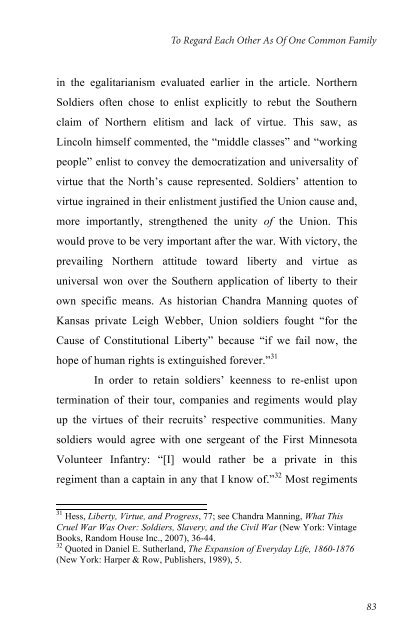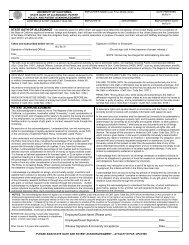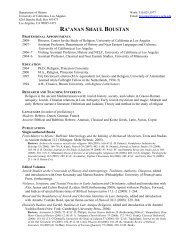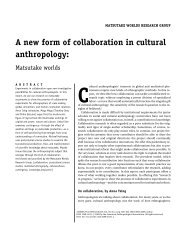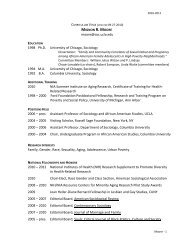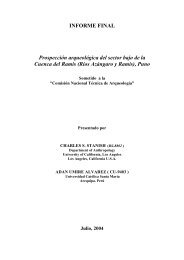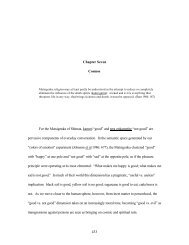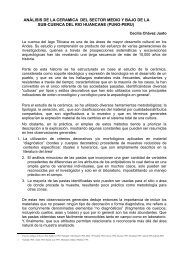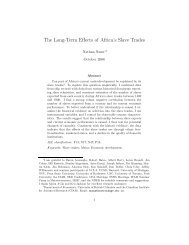QUAESTIO - Social Sciences Division - UCLA
QUAESTIO - Social Sciences Division - UCLA
QUAESTIO - Social Sciences Division - UCLA
Create successful ePaper yourself
Turn your PDF publications into a flip-book with our unique Google optimized e-Paper software.
To Regard Each Other As Of One Common Family<br />
in the egalitarianism evaluated earlier in the article. Northern<br />
Soldiers often chose to enlist explicitly to rebut the Southern<br />
claim of Northern elitism and lack of virtue. This saw, as<br />
Lincoln himself commented, the “middle classes” and “working<br />
people” enlist to convey the democratization and universality of<br />
virtue that the North’s cause represented. Soldiers’ attention to<br />
virtue ingrained in their enlistment justified the Union cause and,<br />
more importantly, strengthened the unity of the Union. This<br />
would prove to be very important after the war. With victory, the<br />
prevailing Northern attitude toward liberty and virtue as<br />
universal won over the Southern application of liberty to their<br />
own specific means. As historian Chandra Manning quotes of<br />
Kansas private Leigh Webber, Union soldiers fought “for the<br />
Cause of Constitutional Liberty” because “if we fail now, the<br />
hope of human rights is extinguished forever.” 31<br />
In order to retain soldiers’ keenness to re-enlist upon<br />
termination of their tour, companies and regiments would play<br />
up the virtues of their recruits’ respective communities. Many<br />
soldiers would agree with one sergeant of the First Minnesota<br />
Volunteer Infantry: “[I] would rather be a private in this<br />
regiment than a captain in any that I know of.” 32 Most regiments<br />
31 Hess, Liberty, Virtue, and Progress, 77; see Chandra Manning, What This<br />
Cruel War Was Over: Soldiers, Slavery, and the Civil War (New York: Vintage<br />
Books, Random House Inc., 2007), 36-44.<br />
32 Quoted in Daniel E. Sutherland, The Expansion of Everyday Life, 1860-1876<br />
(New York: Harper & Row, Publishers, 1989), 5.<br />
83


